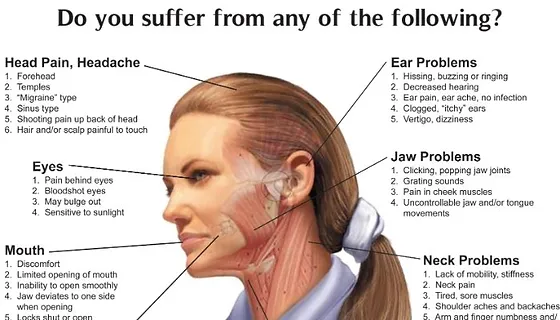Introduction
Temporomandibular joint dysfunction self-care, Temporomandibular Joint Dysfunction (TMJD or TMJ disorder) is a condition that affects the jaw joint and the muscles that control jaw movement. It can lead to symptoms such as jaw pain, clicking or popping sounds, difficulty chewing, and headaches. While professional medical intervention may be necessary in severe cases, there are various self-care measures that individuals can adopt to manage TMJ pain and discomfort. This article explores these self-care strategies to empower individuals dealing with TMJD.

Understanding Temporomandibular Joint Dysfunction
Before delving into self-care techniques, it’s essential to understand what TMJ dysfunction entails. The temporomandibular joint is a hinge joint that connects the jaw to the skull, facilitating essential functions like talking, chewing, and yawning. TMJ dysfunction occurs when there is a problem with the jaw joint or the muscles responsible for jaw movement.
Common symptoms of TMJ dysfunction include:
- Jaw pain or tenderness
- Clicking or popping sounds in the jaw
- Difficulty or discomfort while chewing
- Locking of the jaw joint
- Headaches or earaches
- Changes in the way the upper and lower teeth fit together
Self-Care Strategies for Temporomandibular Joint Dysfunction
- Apply Heat or Cold Packs:
- Heat and cold therapy can help alleviate TMJ pain and reduce inflammation.
- Apply a warm compress or an ice pack to the affected jaw area for about 15-20 minutes.
- Use heat for relaxing the muscles and cold for reducing swelling.
- Practice Jaw Exercises:
- Gentle jaw exercises can help improve jaw mobility and reduce tension.
- Open and close your mouth slowly, and perform side-to-side and up-and-down jaw movements.
- Repeat these exercises several times a day to enhance flexibility.
- Maintain Good Posture:
- Poor posture can contribute to TMJ dysfunction.
- Be conscious of your posture, especially when sitting at a desk or using electronic devices.
- Keep your spine straight, shoulders relaxed, and avoid craning your neck forward.
- Avoid Trigger Foods:
- Some foods can exacerbate TMJ symptoms by requiring excessive jaw movement.
- Avoid hard or chewy foods, and cut food into smaller, bite-sized pieces to reduce strain on the jaw.
- Limit Jaw Strain:
- Be mindful of activities that strain the jaw, such as excessive gum chewing or nail biting.
- Try to minimize activities that involve prolonged jaw movement.
- Manage Stress:
- Stress and anxiety can contribute to TMJ dysfunction.
- Practice stress-reducing techniques such as deep breathing, meditation, or yoga.
- Consider seeking professional help if stress is a significant factor in your TMJ symptoms.
- Use Over-the-Counter Pain Relievers:
- Non-prescription pain relievers such as ibuprofen or acetaminophen can help manage pain and inflammation.
- Follow the recommended dosage and consult with a healthcare professional if needed.

- Night Guards:
- For those with TMJ dysfunction exacerbated by teeth grinding (bruxism), a night guard may be beneficial.
- A night guard can help protect the teeth and alleviate pressure on the jaw during sleep.
- Massage and Stretching:
- Gently massage the jaw and neck muscles to relieve tension.
- Incorporate stretching exercises for the neck, shoulders, and jaw into your daily routine.
- Stay Hydrated:
- Dehydration can contribute to muscle tension.
- Ensure you are adequately hydrated throughout the day by drinking water regularly.
MUST READ=Saúl adiel álvarez
Conclusion
Temporomandibular Joint Dysfunction can significantly impact daily life, but with consistent self-care practices, individuals can manage symptoms and improve their quality of life. It’s crucial to adopt a holistic approach that includes lifestyle modifications, stress management, and targeted exercises. While these self-care strategies can be effective for mild to moderate cases, individuals experiencing severe or persistent symptoms should seek professional medical advice for a comprehensive evaluation and appropriate treatment. By taking an active role in managing TMJ dysfunction, individuals can regain control over their oral health and overall well-being.
